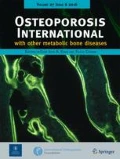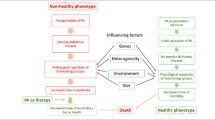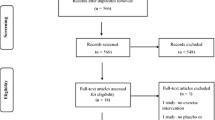Abstract
An operational definition of musculoskeletal decline in older people is needed to allow development of interventions for prevention or treatment, as was developed for the treatment of osteoporosis. Frailty and sarcopenia are linked, but distinct, correlates of musculoskeletal aging that have many causes, including age-related changes in body composition, inflammation, and hormonal imbalance. With the emergence of a number of exciting candidate therapies to retard the loss of muscle mass with aging, the derivation of a consensual definition of sarcopenia and physical frailty becomes an urgent priority. Although several consensual definitions have been proposed, these require clinical validation. An operational definition, which might provide a threshold for treatment/trial inclusion, should incorporate a loss of muscle mass as well as evidence of a decrease in muscle strength and/or physical activity. Evidence is required for a link between improvements in the measures of muscle strength and/or physical activity and clinical outcomes to allow development of interventions to improve clinical outcomes in frail older patients.

Similar content being viewed by others
References
Wolfe RR (2006) The underappreciated role of muscle in health and disease. Am J Clin Nutr 84:475–482
Tzankoff SP, Norris AH (1978) Longitudinal changes in basal metabolic rate in man. J Appl Physiol 33:536–539
Butler RN (1993) Did you say 'sarcopenia'? Geriatrics 48:11–12
Evans W (1995) What is sarcopenia? J Gerontol 50A(special issue):5–8
Evans WJ, Campbell WW (1993) Sarcopenia and age-related changes in body composition and functional capacity. J Nutr 123:465–468
Cruz-Jentoft AJ, Baeyens JP, Bauer JM, Boirie Y, Cederholm T, Landi F, Martin FC, Michel JP, Rolland Y, Schneider SM, Topinková E, Vandewoude M, Zamboni M (2010) Sarcopenia: European consensus on definition and diagnosis: report of the European working group on sarcopenia in older people. Age Ageing 39:412–423
Baumgartner RN, Koehler KM, Gallagher D, Romero L, Heymsfield SB, Ross RR, Garry PJ, Lindeman RD (1998) Epidemiology of sarcopenia among the elderly in New Mexico. Am J Epidemiol 147:755–763
Melton LJ 3rd, Khosla S, Crowson CS, O'Connor MK, O'Fallon WM, Riggs BL (2000) Epidemiology of sarcopenia. J Am Geriatrics Soc 48:625–630
Janssen I, Heymsfield SB, Ross R (2002) Low relative skeletal muscle mass (sarcopenia) in older persons is associated with functional impairment and physical disability. J Am Geriatr Soc 50:889–896
Muscaritoli M, Anker SD, Argilés J, Aversa Z, Bauer JM, Biolo G, Boirie Y, Bosaeus I, Cederholm T, Costelli P, Fearon KC, Laviano A, Maggio M, Rossi Fanelli F, Schneider SM, Schols A, Sieber CC (2010) Consensus definition of sarcopenia, cachexia and pre-cachexia: joint document elaborated by Special Interest Groups (SIG) "cachexia-anorexia in chronic wasting diseases" and "nutrition in geriatrics". Clin Nutr 29:154–159
Fielding RA, Vellas B, Evans WJ, Bhasin S, Morley JE, Newman AB, Abellan van Kan G, Andrieu S, Bauer J, Breuille D, Cederholm T, Chandler J, De Meynard C, Donini L, Harris T, Kannt A, Keime Guibert F, Onder G, Papanicolaou D, Rolland Y, Rooks D, Sieber C, Souhami E, Verlaan S, Zamboni M (2011) Sarcopenia: an undiagnosed condition in older adults. Current consensus definition: prevalence, etiology, and consequences. International working group on sarcopenia. J Am Med Dir Assoc 12:249–256
Fried LP, Ferrucci L, Darer J, Williamson JD, Anderson G (2004) Untangling the concepts of disability, frailty, and comorbidity: implications for improved targeting and care. J Gerontol A Biol Sci Med Sci 59:255–263
Baumgartner RN (2000) Body composition in healthy aging. Ann N Y Acad Sci 904:437–448
Castillo EM, Goodman-Gruen D, Kritz-Silverstein D, Morton DJ, Wingard DL, Barrett-Connor E (2003) Sarcopenia in elderly men and women: the Rancho Bernardo study. Am J Prev Med 25:226–231
Lewiecki EM (2010) Treatment of osteoporosis with denosumab. Maturitas 66:182–186
Kanis JA, Burlet N, Cooper C, Delmas D, Reginster J-Y, Borgstrom F, Rizzoli R (2008) European guidance for the diagnosis and management of osteoporosis in postmenopausal women. Osteoporos Int 19:399–428
Kearns AE, Khosla S, Kostenuik PJ (2008) Receptor activator of nuclear factor kB ligand and osteoprotegerin regulation of bone remodeling in health and disease. Endocr Rev 29:155–192
Chan A, van Bezooijen RL, Lowik CWGM (2007) A new paradigm in the treatment of osteoporosis: Wnt pathway proteins and their antagonists. Curr Opin Invest Drugs 8:293–298
Kandarian SC, Jackman RW (2006) Intracellular signaling during skeletal muscle atrophy. Muscle Nerve 33:155–165
Bhasin S, Taylor WE, Singh R, Artaza J, Sinha-Hikim I, Jasuja R, Choi H, Gonzalez-Cadavid NF (2003) The mechanisms of androgen effects on body composition: mesenchymal pluripotent cell as the target of androgen action. J Gerontol Med Sci 58A:M1103–M1110
Cappola AR, Bandeen-Roche K, Wand GS, Volpato S, Fried LP (2002) Association of IGF-I levels with muscle strength and mobility in older women. J Clin Endocrinol Metab 86:4139–4146
Cappola A, Qian-Li X, Ferrucci L, Guralnik JM, Volpato S, Fried LP (2003) Insulin-like growth factor I and interleukin-6 contribute synergistically to disability and mortality in older women. J Clin Endocrinol Metab 88:2019–2025
Roth SM, Walsh S (2004) Myostatin: a therapeutic target for skeletal muscle wasting. Curr Opin Clin Nutr Metab Care 7:259–263
Evans WG, Paolisso G, Abbatecola AM, Corsonello A, Bustacchini S, Strollo F, Lattanzio F (2010) Frailty and muscle metabolism dysregulation in the elderly. Biogerontology 11:527–536
Hamrick MW, McNeil PL, Patterson SL (2010) Role of muscle-derived growth factors in bone formation. J Musculoskelet Neuronal Interact 10:64–70
Lang T, Streeper T, Cawthon P, Baldwin K, Taaffe DR, Harris TB (2010) Sarcopenia: etiology, clinical consequences, intervention, and assessment. Osteoporos Int 21:543–559
Masoro EJ (1995) Aging: current concepts. In: Masoro E (ed) Handbook of Physiology Section 11: Aging. Oxford University Press, New York, pp 3–21
Rowe JW, Kahn RL (1987) Human aging: usual and successful. Science 237:143–149
Aihie Sayer A, Osmond C, Briggs R, Cooper C (1999) Do all systems age together? Gerontology 45:83–86
Abellan van Kan (2011) Clinical trials on Sarcopenia: methodological issues regarding Phase III trials. Clin Ger Med 27:471–482
Fried LP, Tangen CM, Walston J, Newman AB, Hirsch C, Gottdiener J, Seeman T, Tracy R, Kop WJ, Burke G, McBurnie MA (2001) Cardiovascular Health Study Collaborative Research Group. Frailty in older adults: evidence for a phenotype. J Gerontol A Biol Sci Med Sci 56:M146–M156
Wong CH, Weiss D, Sourial N, Karunananthan S, Quail JM, Wolfson C, Bergman H (2010) Frailty and its association with disability and comorbidity in a community-dwelling sample of seniors in Montreal: a cross-sectional study. Aging Clin Exp Res 22:54–62
Rockwood K, Mitnitski A (2007) Frailty in relation to the accumulation of deficits. J Gerontol A Biol Sci Med Sci 62:722–727
Morley JE (2008) Sarcopenia: diagnosis and treatment. J Nutr Health Aging 12:452–456
Abellan van Kan G (2009) Epidemiology and consequences of sarcopenia. J Nutr Health Aging 13:708–712
Syddall H, Roberts HC, Evandrou M, Cooper C, Bergman H, Aihie Sayer A (2010) Prevalence and correlates of frailty among community-dwelling older men and women: findings from the Hertfordshire cohort study. Age Ageing 39:197–203
Cooper R, Kuh D, Hardy R, Mortality Review Group; FALCon and HALCyon Study Teams (2010) Objectively measured physical capability levels and mortality: systematic review and meta-analysis. BMJ 341:c4467
Guralnik JM, Ferrucci L, Simonsick EM, Salive ME, Wallace RB (1995) Lower-extremity function in persons over the age of 70 years as a predictor of sebsequent disability. N Engl J Med 332:556–561
Studenski S, Perera S, Patel K, Rosano C, Faulkner K, Inzitari M, Brach J, Chandler J, Cawthon P, Connor EB, Nevitt M, Visser M, Kritchevsky S, Badinelli S, Harris T, Newman AB, Cauley J, Ferrucci L, Guralnik J (2011) Gait speed and survival in older adults. JAMA 305:50–58
Abellan van Kan G, Rolland Y, Andrieu S, Bauer J, Beauchet O, Bonnefoy M, Cesari M, Donini LM, Gillette Guyonnet S, Inzitari M, Nourhashemi F, Onder G, Ritz P, Salva A, Visser M, Vellas B (2009) Gait speed at usual pace as a predictor of adverse outcomes in community-dwelling older people an International Academy on Nutrition and Aging (IANA) Task Force. J Nutr Health Aging 13:881–889
Sayer AA, Dennison EM, Syddall HE, Gilbody HJ, Phillips DI, Cooper C (2005) Type 2 diabetes, muscle strength, and impaired physical function: the tip of the iceberg? Diabetes Care 28:2541–2542
Sayer AA, Syddall HE, Martin HJ, Dennison EM, Roberts HC, Cooper C (2006) Is grip strength associated with health-related quality of life? Findings from the Hertfordshire cohort study. Age Ageing 35:409–415
Kerr A, Syddall HE, Cooper C, Turner GF, Briggs RS, Sayer AA (2006) Does admission grip strength predict length of stay in hospitalised older patients? Age Ageing 35:82–84
Visser M, Kritchevsky SB, Goodpaster BH, Newman AB, Nevitt M, Stamm E, Harris TB (2002) Leg muscle mass and composition in relation to lower extremity performance in men and women aged 70 to 79: the health, aging and body composition study. J Am Geriatr Soc 50:897–904
Morley JE (1999) Growth hormone: fountain of youth or death hormone? J Am Geriatr Soc 47:1475–1476
Morais JA, Chevalier S, Gougeon R (2006) Protein turnover and requirements in the healthy and frail elderly. J Nutr Health Aging 10:272–283
Hannan MT, Tucker KL, Dawson-Hughes B, Cupples LA, Felson DT, Kiel DP (2000) Effect of dietary protein on bone loss in elderly men and women: the Framingham osteoporosis study. J Bone Miner Res 15:2504–2512
Visser M, Simonsick EM, Colbert LH, Brach J, Rubin SM, Kritchevsky SB, Newman AB, Harris TB, for the Health ABC Study (2005) Type and intensity of activity and risk of mobility limitation: the mediating role of muscle parameters. J Am Geriatr Soc 53:762–770
Sayer AA, Syddall HE, Gilbody HJ, Dennison EM, Cooper C (2004) Does sarcopenia originate in early life? Findings from the Hertfordshire cohort study. J Gerontol A Biol Sci Med Sci 59:M930–M934
Sayer AA, Syddall H, Martin H, Patel H, Baylis D, Cooper C (2008) The developmental origins of sarcopenia. J Nutr Health Aging 12:427–432
Bauer JM, Sieber CC (2008) Sarcopenia and frailty: a clinician's controversial point of view. Exp Gerontol 43:674–678
Zamboni M, Mazzali G, Fantin F, Rossi A, Di Francesco V (2008) Sarcopenic obesity: a new category of obesity in the elderly. Nutr Metab Cardiovasc Dis 18:388–395
Baumgartner RN, Wayne SJ, Waters DL, Janssen I, Gallagher D, Morley JE (2004) Sarcopenic obesity predicts instrumental activities of daily living disability in the elderly. Obes Res 12:1995–2004
Zoico E, Di Francesco V, Guralnik JM, Mazzali G, Bortolani A, Guariento S, Sergi G, Bosello O, Zamboni M (2004) Physical disability and muscular strength in relation to obesity and different body composition indexes in a sample of healthy elderly women. Int J Obes Relat Metab Disord 28:234–241
Rolland Y, Lauwers-Cances V, Cristini C, Abellan van Kan G, Janssen I, Morley JE, Vellas B (2009) Difficulties with physical function associated with obesity, sarcopenia, and sarcopenic-obesity in community-dwelling elderly women: the EPIDOS (EPIDemiologie de l'OSteoporose) Study. Am J Clin Nutr 89:1895–1900
Franceschi C, Bonafè M, Valensin S, Olivieri F, De Luca M, Ottaviani E, De Benedictis G (2000) Inflamm-aging. An evolutionary perspective on immunosenescence. Ann N Y Acad Sci 908:244–254
Nicklas BJ, Brinkley TE (2009) Exercise training as a treatment for chronic inflammation in the elderly. Exerc Sport Sci Rev 37:165–170
Peake J, Della Gatta P, Cameron-Smith D (2010) Aging and its effects on inflammation in skeletal muscle at rest and following exercise-induced muscle injury. Am J Physiol Regul Integr Comp Physiol 298:R1485–R1495
Frontera WR, Meredith CN, O'Reilly KP, Knuttgen HG, Evans WJ (1998) Strength conditioning in older men: skeletal muscle hypertrophy and improved function. J Appl Physiol 64:1038–1044
Fiatarone MA, O'Neill EF, Ryan ND, Clements KM, Solares GR, Nelson ME, Roberts SB, Kehayias JJ, Lipsitz LA, Evans WJ (1994) Exercise training and nutritional supplementation for physical frailty in very elderly people. N Engl J Med 330:1769–1775
Nelson ME, Fiatarone MA, Morganti CM, Trice I, Greenberg RA, Evans WJ (1994) Effects of high-intensity strength training on multiple risk factors for osteoporotic fractures. JAMA 272:1909–1914
Fiatarone MA, Marks EC, Ryan ND, Meredith CN, Lipsitz LA, Evans WJ (1990) High-intensity strength training in nonagenarians. Effects on skeletal muscle. JAMA 263:3029–3034
Bruunsgaard H, Bjerregaard E, Schroll M, Pedersen BK (2004) Muscle strength after resistance training is inversely correlated with baseline levels of soluble tumor necrosis factor receptors in the oldest old. J Am Geriatr Soc 52:237–241
Vermeulen A, Kaufman JM, Giagulli VA (1996) Influence of some biological indexes on sex hormone-binding globulin and androgen levels in aging or obese males. J Clin Endocrinol Metab 81:1821–1826
Kaufman JM, T’Sjoen G, Vermeulen A (2004) Androgens in male senescence. In: Nieschlag E, Behre HM (eds) Testosterone, action, deficiency, substitution, 3rd edn. Cambridge University Press, Cambridge, UK, pp 497–541
Andersson AM, Jensen TK, Juul A, Petersen JH, Jørgensen T, Skakkebaek NE (2007) Secular decline in male testosterone and sex hormone binding globulin serum levels in Danish population surveys. J Clin Endocrinol Metab 92:4696–4705
Kaufman JM, Vermeulen A (2005) The decline of androgen levels in elderly men and its clinical and therapeutic implications. Endocr Rev 26:833–876
Vermeulen A (1987) Nyctohemeral growth hormone profiles in young and aged men: correlation with somatomedin-C levels. J Clin Endocrinol Metab 64:884–888
Lamberts SW, van den Beld AW, van der Lely AJ (1997) The endocrinology of aging. Science 278:419–424
Pahor M, Manini T, Cesari M (2009) Sarcopenia: clinical evaluation, biological markers and other evaluation tools. J Nutr Health Aging 13:724–728
Kreisberg RA, Bowdoin B, Meador CK (1970) Measurement of muscle mass in humans by isotopic dilution of creatine-14C. J Appl Physiol 28:264–267
Newman AB, Simonsick EM, Naydeck BL, Boudreau RM, Kritchevsky SB, Nevitt MC, Pahor M, Satterfield S, Brach JS, Studenski SA, Harris TB (2006) Association of long-distance corridor walk performance with mortality, cardiovascular disease, mobility limitation, and disability. JAMA 295:2018–2026
Pahor M, Cesari M (2011) Designing Phase IIB trials in sarcopenia. The best target population. J Nutr Health Aging 15:725–730
Perera S, Mody SH, Woodman RC, Studenski SA (2006) Meaningful change and responsiveness in common physical performance measures in older adults. J Am Geriatr Soc 54:743–749
Studenski S (2009) What are the outcomes of treatment among patients with sarcopenia? J Nutr Health Aging 13(8):733–736
Evans WJ (2011) Drug discovery and development for ageing: opportunities and challenges. Phil Trans R Soc B 366:113–119
Rejeski WJ, Marsh AP, Chmelo E, Prescott AJ, Dobrosielski M, Walkup MP, Espeland M, Miller ME, Kritchevsky S (2009) The lifestyle interventions and independence for elders pilot (LIFE-P): 2-year follow-up. J Gerontol A Biol Sci Med Sci 64:462–467
Espeland MA, Gill TM, Guralnik J, Miller ME, Fielding R, Newman AB, Pahor M (2007) Designing clinical trials of interventions for mobility disability: results from the lifestyle interventions and independence for elders pilot (LIFE-P) trial. J Gerontol A Biol Sci Med Sci 62:1237–1243
Acknowledgements
WD is an employee and stockholder of Amgen, Inc.; WE is an employee of GlaxoSmithKline; BM is an employee and shareholder of Eli Lilly and Company; YT is an employee of Servier. YR has spoken for and prepared an education module with Nutricia and is on the expert board of Cheisi and Lactalis. SB is senior clinical investigator of the Fund for Scientific Research, Flanders, Belgium (F.W.O.-Vlaanderen) and holder of the Leuven University Chair in Gerontology and Geriatrics. Medical writing assistance was provided by Lucy Hyatt of Amgen (Europe) GmbH, with additional editorial assistance from Lucy Kanan of Bioscript Stirling, funded by Amgen (Europe) GmbH and GlaxoSmithKline.
Conflicts of interest
None.
Author information
Authors and Affiliations
Corresponding author
Rights and permissions
About this article
Cite this article
Cooper, C., Dere, W., Evans, W. et al. Frailty and sarcopenia: definitions and outcome parameters. Osteoporos Int 23, 1839–1848 (2012). https://doi.org/10.1007/s00198-012-1913-1
Received:
Accepted:
Published:
Issue Date:
DOI: https://doi.org/10.1007/s00198-012-1913-1




